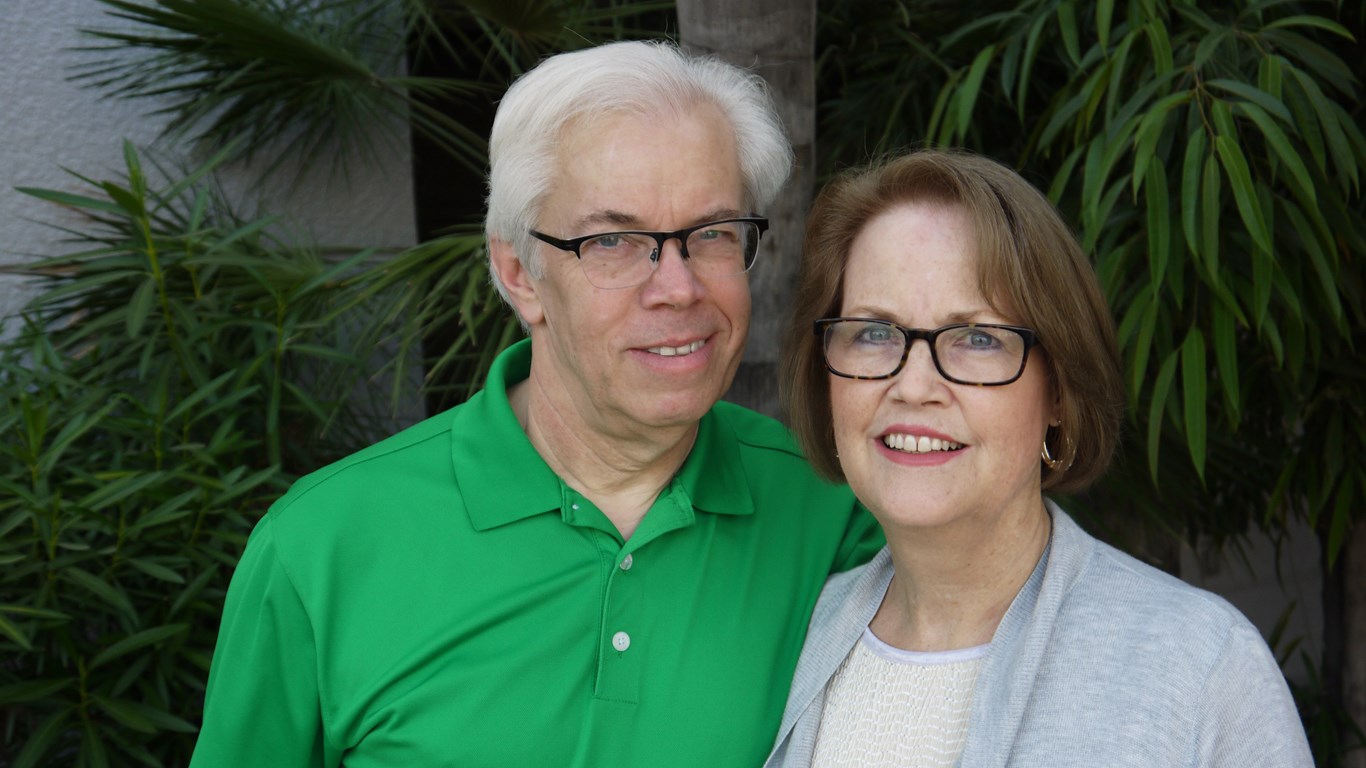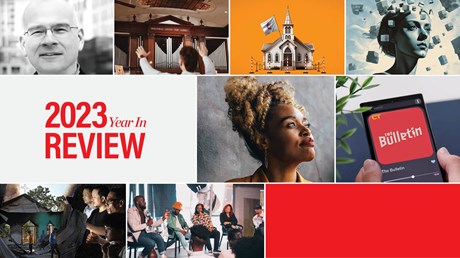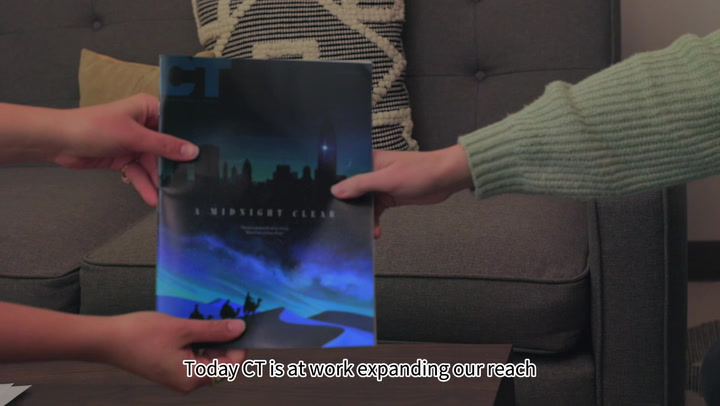
Help CT challenge Christians to think more deeply and live more godly.
Give NowHelp CT challenge Christians to think more deeply and live more godly.
Give NowUnlike when the paper would be dropped on the doorstep and then sifted between sports, comics, and current events, a Christianity Today magazine is not so easily split, which is unfortunate for Barry Gardner and his wife, Susan.
Barry, the chief financial officer at Food for the Hungry, enjoys the current events, politics, and local church coverage in Christianity Today. In the April 2017 issue of CT, a reader like Barry would turn straight to Ted Olsen's editorial on the death of moral relativism in our church and culture. After reading that, he'd have a headline catch his eye: "How a Hotshot New Yorker Found Jesus in Paraguay." Then perhaps he would go back through more meticulously and read the articles he missed in between. Barry said he's "always looked to Christianity Today to be an informed and timely reflection of evangelical thought," and the best way for CT to continue to meet his needs would be to "maintain the practical, the evangelical, the witness, and culture portions—don't let them be overrun by the theological."
Trying to consider so many readers does present a unique challenge, but Barry was gracious in his assessment: "CT issues meet the needs of a split family. The magazine has become a little more theological recently. It seems to be catering to a more pastoral audience, and that might be where the demographic is. That works out nicely for my family because my wife likes to read those articles, but I'm more into what's going on in churches and politics."
Enter Susan Gardner. While her husband may have been drawn to the op-ed and witness articles in the latest issue, I like to imagine Susan immediately opens to the cover story, a revisiting of "The Most Astonishing Easter Miracle," and then she quickly followed that with Craig Keener's insightful article on John 10:10, dissecting the verse about the thief who comes to steal, kill, and destroy.
Christianity Today, where theology articles are housed beside book reviews, and politics are nestled next to conversion stories.
But this wasn't Barry's favorite aspect of the magazine. According to Barry, CT's most admirable quality is "presenting multiple sides to an issue. That builds credibility for me. Even if I'm not interested or informed on the archaea of a theological issue, I have the feeling both sides are respectful of each other, and the reader can make up his or her mind based on the presentation of informed people. That's a big plus, and I can't find that anywhere else."
Christianity Today has a long history of presenting differing views, like in the Under Discussion section. Recently, four experts weighed in offering their opinions on whether America's refugee policy should put Christians first. And "Does the United States Belong on Persecution Lists?" included six experts' opinions, hitting the spectrum from a firm no to a very affirming yes. These platforms for debate and discussion are vital to the health of the church, and Christianity Today is excited to play a role in providing them.
What I was most curious about was why Barry switched from being a magazine subscriber to a financial partner with the ministry. That's not a shift one makes unconsciously, but it is one a growing number of CT subscribers are making. So why Barry? And why now? His answer did not disappoint me.
I'm well aware the publishing business in general is a mess. As people have become accustomed to getting information for free from the internet, they gravitate there first for their source of news. And it's affected all forms of media. As a result, it's harder and harder to find a source of information about what goes on in the evangelical church. It's easy to find partisan discussion on the internet, but it's hard to find healthy debate on the internet. And that's what I appreciate about CT.
We were also Books and Culture subscribers, so when that closed, it was clear that CT continues to experience that same media pressure everyone is experiencing. People have to get past the idea that opinions are free so magazines and articles should be free too.
Ultimately, what Andy Crouch's piece on the presidential election did for me was it pulled together my Christian principles and asked, "Well, how does that affect the lever that I pull when I talk about politics?" That challenged me, and I wanted to make sure that voice remained viable. So that's why I went beyond just buying a magazine and decided to support a ministry.
As Barry and I were winding down our talk, he chimed in suddenly with a thought, one that made me thankful for the brick and mortar walls around me: "You know, I lived in Wheaton, Illinois, for a while, and for that period of time, I was always cognizant and appreciative of that building on Gundersen Drive and the publications that came from it."
For Barry, when a magazine reaches into your life and becomes more than coffee table decor, when it forces you to reevaluate your priorities, your values, your levers, that's when a subscription doesn't seem quite enough.
Joy Beth Smith is an editor at Christianity Today.








